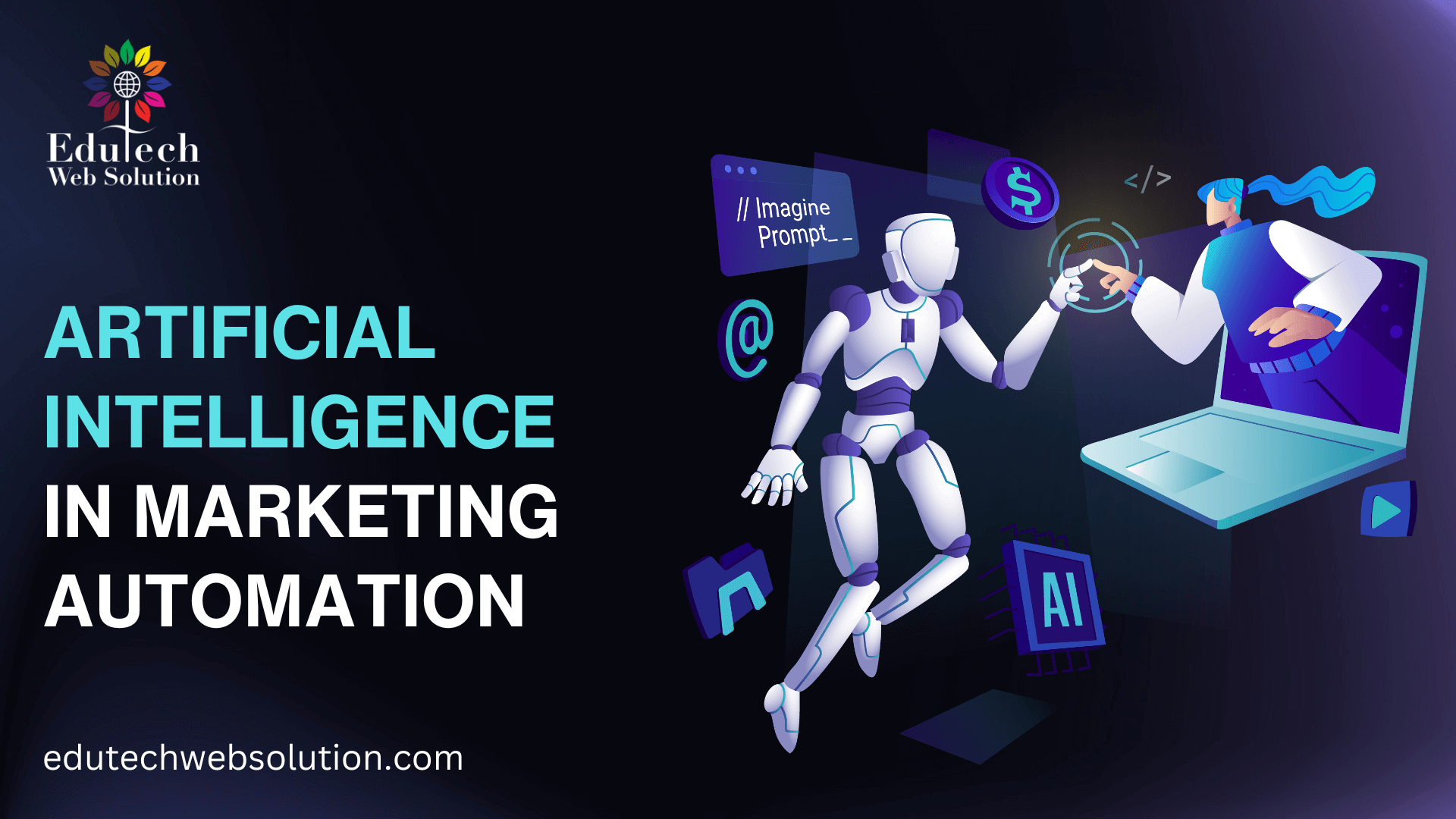
Artificial Intelligence in Marketing Automation
Artificial intelligence (AI) has become a disruptive factor in marketing automation in recent years. Marketers may improve personalization, expedite procedures, and achieve superior outcomes across a variety of marketing channels by utilizing AI. We’ll discuss the use of AI in marketing automation in this blog post, along with its advantages, drawbacks, and potential applications.
Introduction to AI in Marketing Automation:
The term “artificial intelligence” describes how computers, specifically computer systems, may simulate human intelligence processes. Using technology to automate monotonous operations, optimize workflows, and boost campaign efficiency is known as marketing automation. Artificial Intelligence (AI) in marketing automation leverages machine learning, natural language processing, and predictive analytics to maximize marketing efforts and provide customers with more individualized experiences.
Benefits of AI in Marketing Automation:
Enhanced efficiency is one of the main advantages of AI in marketing automation. Marketers can concentrate on higher-value activities like strategy development and creative content production by using AI-powered solutions to automate time-consuming operations like data analysis, segmentation, and campaign optimization. Furthermore, by analyzing enormous volumes of data to customize marketing messages and offers to specific interests and behaviors, AI enables increased personalization. This degree of customization raises the possibility of conversions and sales in addition to enhancing consumer engagement.
Moreover, by predicting future trends, spotting possible opportunities, and reducing risks, AI-driven predictive analytics enable marketers to make data-driven decisions. Businesses may keep ahead of the competition, enhance marketing strategies, and allocate resources more effectively by utilizing predictive analytics.
AI-Powered Applications in Marketing Automation:
There are several applications for artificial intelligence in marketing automation. For instance, AI-driven chatbots are transforming customer service by providing quick assistance and direction to users, boosting user satisfaction and retention. These chatbots can answer queries, deal with issues, and even personalize interactions based on user data.
In order to perform real-time price modifications, artificial intelligence (AI) algorithms analyze competitor pricing, customer behavior, and market dynamics. Dynamic pricing boosts revenue, preserves competitiveness, and maximizes profit margins.
AI is also very important for optimizing and creating content. AI algorithms are used by natural language generation (NLG) systems to produce text that appears human, such as blog entries, social media updates, and product descriptions. By evaluating user input and performance indicators, AI also helps with content optimization. This helps with improving messaging, headlines, and keywords for improved search engine rankings.
Through send time optimization, subject line optimization, and personalized recommendations, AI improves campaign efficacy in email marketing. Artificial intelligence (AI) algorithms can provide subscribers with relevant and tailored information, increasing open, click-through, and conversion rates by examining user behavior and engagement patterns.
Challenges and Ethical Considerations:
Although artificial intelligence (AI) has many advantages for marketing automation, there are drawbacks and moral dilemmas. Security and privacy of data is one of the main issues. Because AI needs a lot of data to work well, it is critical to protect customer privacy and security. To safeguard sensitive data, marketers need to follow laws like the CCPA and GDPR and put strong security measures in place.
Algorithm bias represents a further challenge, since AI systems have the potential to reinforce preexisting prejudices found in the training data. Unintended repercussions like discriminatory messages or targeting may result from this. Marketers must actively monitor and eliminate bias in AI algorithms to ensure fair and ethical practices.
Future Trends in AI and Marketing Automation:
Looking ahead, there are a lot of exciting potential for AI in marketing automation. Advances in voice search optimization, visual recognition, and predictive customer service are examples of emerging trends. As voice-activated gadgets like smart speakers gain popularity, marketers will have more chances to contact with customers via voice-activated interactions.
AI can now evaluate photos and videos thanks to visual recognition technology, creating new opportunities for user interaction and content optimization. Marketers may track competitor activity on visual platforms like social media, evaluate brand mentions, and spot trends by using visual recognition.
Furthermore, proactive problem-solving and individualized support based on predictive analytics are made possible by AI-powered predictive customer care. Businesses may provide better customer experiences and forge closer bonds with their audience by foreseeing the wants and requirements of their customers.
Conclusion:
In conclusion, the field of marketing automation is changing due to artificial intelligence, which is enabling companies to increase the efficacy, efficiency, and personalization of their marketing campaigns. Marketers may gain useful insights, streamline tedious tasks, and provide their target audience with more engaging experiences by utilizing AI-driven tools and techniques. Even with its obstacles and moral dilemmas, artificial intelligence (AI) in marketing automation has a bright future ahead of it.
AI integration into marketing automation plans is now required for companies to thrive in the current digital era and remain competitive. Marketers may seize new possibilities and propel long-term company growth by embracing AI technologies and keeping up with developing trends.